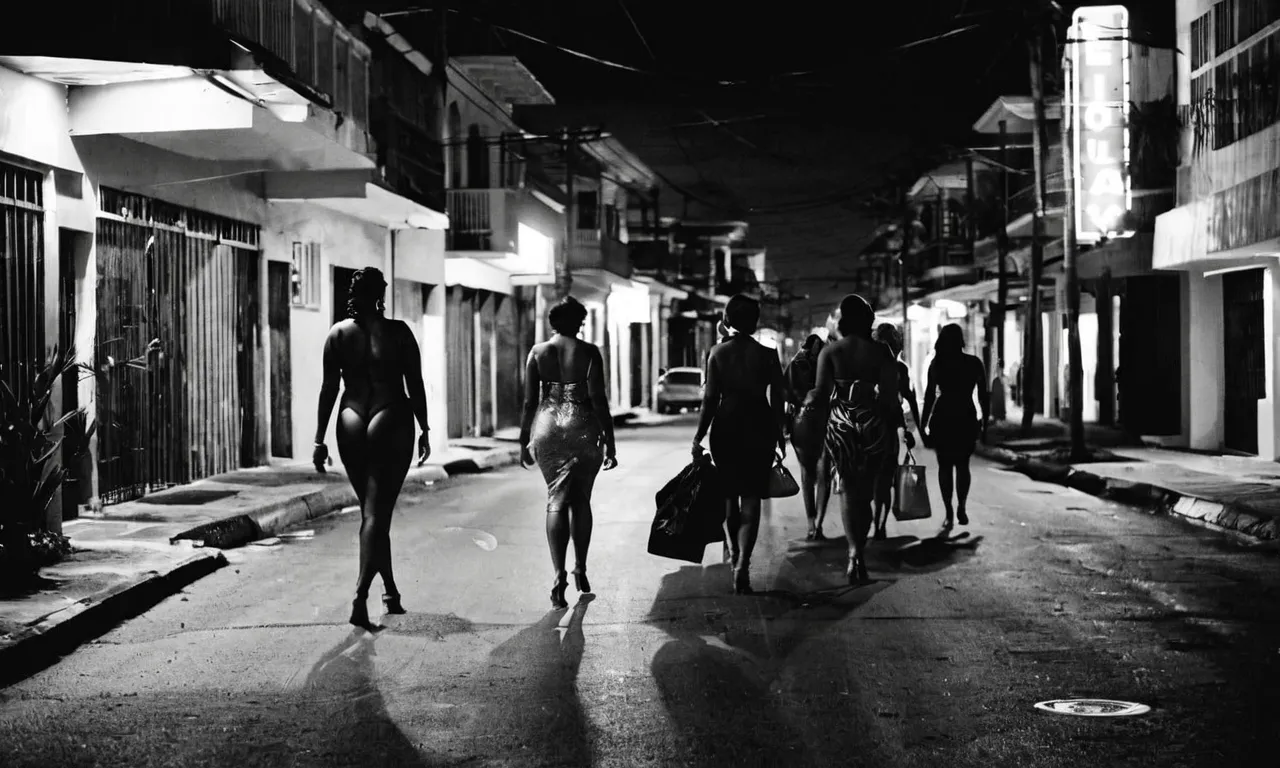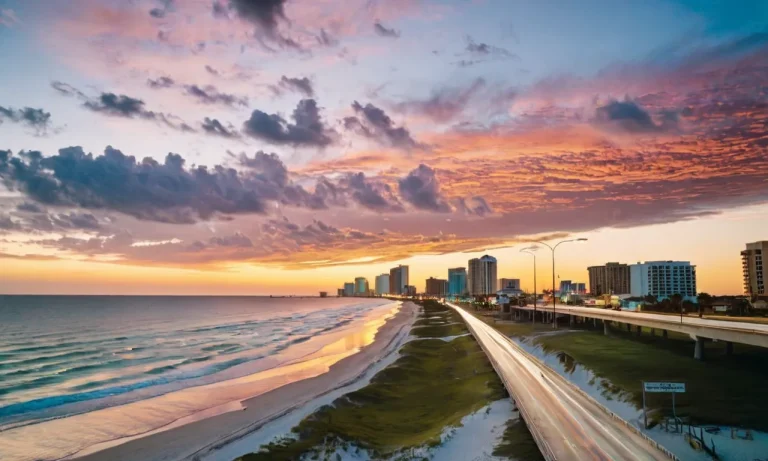Is Prostitution Legal In Panama?
Is prostitution legal in Panama? Prostitution is a complex issue that involves moral, ethical, health, and legal considerations. In Panama, prostitution itself is legal.
If you’re short on time, here’s a quick answer: While exchanging sex for money is explicitly illegal in many countries, in Panama consensual adult prostitution is legal and regulated. However, many activities associated with prostitution, like pimping, or operating brothels are illegal.
Prostitution Laws in Panama
History of Laws Regarding Prostitution
The history of laws regarding prostitution in Panama is complex and has evolved over time. In the early 20th century, prostitution was regulated in certain areas. However, with the rise of organized crime and concerns about human trafficking, the government started implementing stricter regulations.
During the 1990s, Panama passed laws aimed at combating human trafficking and sexual exploitation. These laws made it illegal to promote or facilitate prostitution, involving minors. The government also established programs to provide support and rehabilitation for individuals involved in prostitution.
It is worth noting that Panama has been actively working with international organizations, such as the United Nations, to address the issue of human trafficking and to improve the protection of individuals involved in the sex industry.
Current Legal Status of Prostitution
In Panama, prostitution itself is not explicitly illegal. However, the activities surrounding prostitution, such as brothel-keeping and pimping, are considered illegal. This means that individuals who engage in sex work may not face legal consequences, but those who facilitate or profit from it can be prosecuted.
The government of Panama has taken measures to regulate and monitor the sex industry. They have implemented policies to ensure the safety and well-being of sex workers, including providing access to healthcare and social services.
Additionally, efforts have been made to raise awareness about the risks and dangers associated with prostitution.
It is important to note that prostitution is a complex issue with varying perspectives. Some argue that it should be fully legalized and regulated, while others believe that it should be abolished altogether.
The current approach in Panama aims to strike a balance between protecting individuals involved in sex work and preventing exploitation.
Related Activities That Are Illegal
- Brothel-keeping: Owning or managing a brothel is illegal in Panama. Those found guilty of running a brothel can face criminal charges.
- Pimping: Pimping, which involves facilitating or profiting from prostitution, is also illegal. This includes activities such as soliciting clients or managing the affairs of sex workers.
- Human trafficking: Panama has strict laws against human trafficking. The government has implemented measures to combat this crime and protect victims. Those involved in trafficking can face severe penalties, including lengthy prison sentences.
For more information on prostitution laws in Panama, you can visit the official website of the Government of Panama.
Health and Safety Considerations
When discussing the legality of prostitution in Panama, it is important to consider the health and safety aspects associated with this profession. The well-being of sex workers is crucial, and measures must be taken to ensure their protection.
STD/HIV Prevention and Testing
One of the key health considerations for sex workers is the prevention and testing of sexually transmitted diseases (STDs) and HIV. Sex workers must have access to healthcare facilities that offer regular screenings and testing.
This not only protects the workers themselves but also helps in preventing the spread of infections to their clients.
Organizations such as the World Health Organization (WHO) emphasize the importance of comprehensive sex education, condom use, and regular testing for sex workers. These measures not only promote safer practices but also empower sex workers to take control of their own health.
Violence Against Sex Workers
Another significant concern in the context of prostitution is the violence faced by sex workers. Due to the stigmatization and marginalization of this profession, sex workers often become vulnerable to physical and sexual abuse.
It is imperative to address this issue and ensure the safety of sex workers.
Various organizations, such as Amnesty International, advocate for the decriminalization of sex work to protect the rights and safety of sex workers. By decriminalizing prostitution, it becomes easier for sex workers to report incidents of violence without fear of legal consequences.
Furthermore, establishing support networks and providing access to resources such as counseling services and legal aid can help sex workers in dealing with violent situations. These measures can contribute to creating a safer environment for sex workers.
Debates Around Legalizing Prostitution
Legalizing prostitution is a controversial topic that sparks intense debates around the world, including in Panama. Prostitution refers to the exchange of sexual services for money or goods, and it has been a part of human societies for centuries.
While some argue that legalizing prostitution would provide better protection for sex workers and reduce the prevalence of illegal activities associated with it, others believe that it promotes exploitation and undermines societal values.
Arguments For Legalization
Proponents of legalizing prostitution argue that it would bring numerous benefits. Firstly, it would provide better protection and support for sex workers. By regulating the industry, governments can enforce health and safety standards, ensuring that sex workers have access to healthcare, legal protections, and social services.
This would help reduce the risks of sexually transmitted infections and violence that sex workers often face.
Furthermore, legalization could help in combating human trafficking. By bringing prostitution out of the shadows, it becomes easier to identify and target illegal activities such as forced prostitution and sex trafficking.
This can lead to the prosecution of those responsible for exploiting vulnerable individuals and provide a safer environment for consenting adults engaged in the sex trade.
Additionally, legalizing prostitution could have economic benefits. The sex trade can generate significant revenue, which can be taxed and used to fund public services or support programs aimed at helping individuals exit the industry.
This revenue can contribute to the overall economic growth of a country.
Arguments Against Legalization
Those against legalizing prostitution have their own set of arguments. One of the key concerns is the potential for increased exploitation. Critics argue that legalizing prostitution normalizes the commodification of human bodies and perpetuates the objectification of women.
They believe that it reinforces gender inequality and contributes to the marginalization of vulnerable groups.
Opponents also fear that legalization may lead to an increase in human trafficking. They argue that legalizing prostitution could create a demand that cannot be met by willing participants alone, thereby increasing the need for trafficked individuals.
They point to countries where prostitution is legalized, such as Germany and the Netherlands, where human trafficking for sexual exploitation persists.
Furthermore, opponents argue that legalizing prostitution may not eliminate the illegal activities associated with it. Instead, it could lead to the proliferation of unregulated and underground markets, where exploitation and abuse may continue to thrive.
They argue that rather than legalizing prostitution, efforts should be focused on addressing the root causes of sex work, such as poverty and inequality.
It is important to note that the debate around legalizing prostitution is complex and multifaceted. Different countries have adopted different approaches, with varying degrees of success. Ultimately, the decision whether to legalize prostitution or not should be made considering the unique social, cultural, and economic factors of each society.
Prostitution in Panama Today
Prostitution in Panama has a legal status. While it is technically legal, there are certain regulations and restrictions in place. The country has designated specific areas known as “Zones of Tolerance” where prostitution is permitted.
These zones are established in an effort to monitor and regulate the industry, ensuring the safety and well-being of both sex workers and clients.
Zones of Tolerance
The Zones of Tolerance in Panama are designated areas where prostitution is allowed to operate. These zones are typically located in specific districts or neighborhoods, such as El Cangrejo in Panama City.
Within these zones, sex workers can legally offer their services, and establishments such as strip clubs are permitted to operate. The government closely monitors these areas to prevent human trafficking and exploitation.
It is important to note that prostitution outside of these designated zones is illegal and subject to penalties. Law enforcement agencies actively crack down on illegal prostitution activities and work to ensure that the industry operates within the established regulations.
Prevalence and Demographics
The prevalence of prostitution in Panama can vary depending on the region. Panama City, being the country’s capital and largest city, tends to have a higher concentration of sex workers and establishments.
However, prostitution can also be found in other parts of the country, particularly in tourist areas.
Demographically, the sex industry in Panama is diverse. Sex workers come from various backgrounds and may engage in the profession for a variety of reasons. Some individuals enter the industry willingly, while others may be coerced or forced into it.
It is crucial to address the underlying factors that contribute to the existence of prostitution and provide support and resources for those who wish to leave the industry.
Services Offered
In Panama, sex workers offer a range of services to clients. These services can include companionship, sexual acts, role-playing, and more. The specific services provided can vary depending on the preferences and boundaries set by individual sex workers.
It is important to emphasize that engaging in sexual activities with a minor is illegal and punishable by law.
While prostitution remains a controversial topic, it is important to address the industry with empathy and understanding. By promoting education, awareness, and support for sex workers, we can work towards safer and healthier conditions within the industry.
Is Prostitution Legal In Panama – Conclusion
While exchanging sex for money is technically legal in Panama, the complex laws around activities associated with prostitution make it a risky industry to participate in. There are also many health and safety issues to consider with legalizing prostitution.
The debate around fully legalizing prostitution continues, but for now, it exists in a legal gray area in Panama that leaves sex workers vulnerable.








